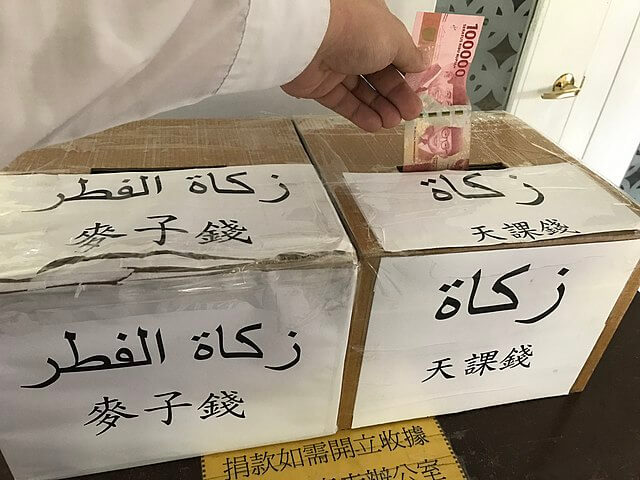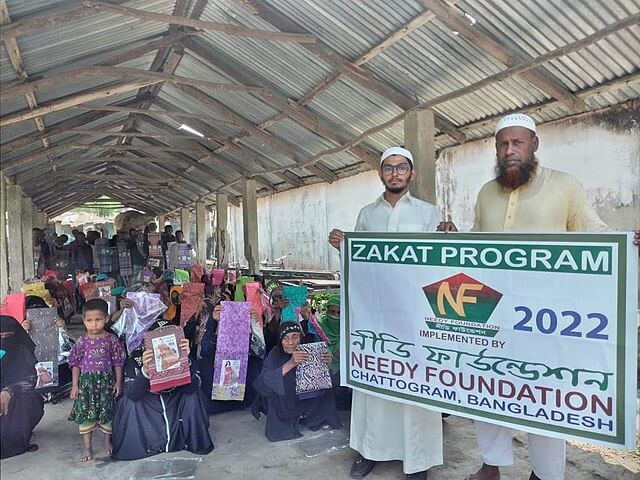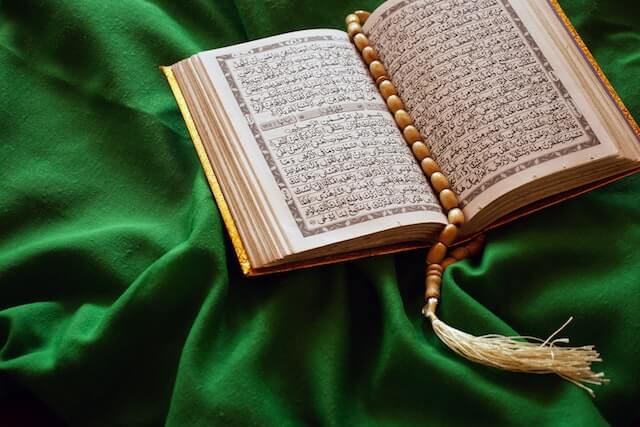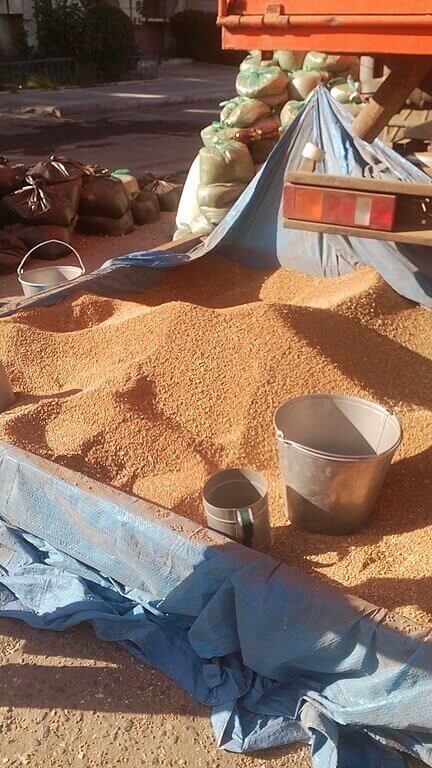Zakat is a fundamental practice in Islam, emphasizing the principles of charity and social responsibility towards the less fortunate members of society. It is the third pillar of Islam and an essential act of worship for all Muslims who possess the minimum required amount of wealth (nisab).
The term Zakat refers to the obligatory tax that Muslims are required to pay on their wealth, and its payment is an act of purifying one’s wealth and a demonstration of one’s faith. There are two types of Zakat, Zakat Al-Mal (on wealth) and Zakat Al-Fitr (on breaking the fast).
In this blog post, we will explore the meaning and significance of Zakat in Islam, the nisab threshold, the types of Zakat, the practice of Zakat, its importance in Islamic society, the six virtues of the Zakat payer, and the Quranic verses related to Zakat.
Featured Image – Photo by micheile dot com on Unsplash
Table of Contents
- What Is Zakat in Islam?
- What Does the Term “Zakat” Mean?
- What is Nisab?
- How Many Types Of Zakat Exist In Islam?
- The Practice of Zakat
- The Importance of Zakat Practice in Islamic Society
- The Six Virtues of the Zakat Payer for Muslims
- Quran Verses about Zakat
What Is Zakat in Islam?
Zakat (or Zakah) is one of the five pillars of Islam and is an obligatory act of charitable giving for Muslims. They must pay a portion of their wealth, that is 2.5% of their total savings, to the poor and needy every lunar year.
This act of giving is intended to purify a Muslim’s wealth and remind them of their duty to assist those less fortunate.
In Muslim countries where zakat is mandatory, it is collected and distributed by the state. However, in most other Islamic countries, Muslims are left to pay zakat voluntarily.
Overall, paying zakat is a crucial component of being a Muslim and fulfilling one’s religious duties.
You may also like:
Shahada Islamic Declaration of Faith – the First Pillar of Islam
All about Salat: Devotion and Faith in Allah
How To Do The Sawm Fasting In Islam – The Fourth Pillar
What is Hajj Pilgrimage? Rituals and Significance in Islam – All You Need to Know
What Does the Term “Zakat” Mean?
The term “zakat” comes from the Arabic root word “ز ك و” which means to purify. Its literal meaning is “increase,” as in growth or expansion (namâ), but it also carries connotations of “blessings” (barakah), “purification” (tahârah), and “commendation” (mad^).
What is Nisab?
Nisab is the minimum amount of wealth a Muslim must possess before they become eligible to pay Zakat, which is an obligatory charity in Islam.
The nisab threshold is based on the value of gold and silver, and it is currently set at the value of 87.48 grams of gold or 612.36 grams of silver.
Once a Muslim’s total wealth reaches this minimum amount, they become eligible to pay Zakat on their wealth. If their wealth is below the nisab threshold, they are not required to pay Zakat.

How Many Types Of Zakat Exist In Islam?
Muslims are required to pay two types of Zakat: Zakat Al-Mal, which is paid annually on their wealth, and Zakat Al-Fitr, which is paid at the end of the holy month of Ramadan to mark the completion of fasting.
Zakat Al Mal
Zakat Al Mal is a type of Zakat that Muslims pay every year. It is a tax on wealth, including money, gold, silver, and property. The amount a Muslim needs to pay depends on how much wealth they have. It’s 2.5% of their total wealth.
Only those who have a certain amount of wealth, called nisab, need to pay Zakat Al Mal. If someone doesn’t have that much wealth, they don’t need to pay it.
Zakat Al Fitr
Zakat Al Fitr is a special charity that all Muslims must pay at the end of Ramadan. It is also known as Sadaqat Al Fitr or Zakat Al Fitrah. This charity is mandatory for every Muslim regardless of their age or gender.
The word “fitrah” comes from Arabic and means the nature on which God created human beings. The amount of Zakat Al Fitr a Muslim pays is equal to the cost of a meal. This charity must be given to the poor, even in other countries, so they can receive it on the day of Eid.
Zakat and Al-Sadaqah: What is the Difference?
While Zakat is an compulsory charity, Al-Sadaqah is a voluntary charitable donation that can be given at any time and to anyone, regardless of their religion or status.
Zakat has specific rules and requirements; Al-Sadaqah has no set amount or restrictions.
Both are encouraged in Islam as a way to purify one’s wealth and help those in need.
The Practice of Zakat
The 3 Conditions of Zakat: Who is Required to Pay
- Muslims must pay if they have Nisab, that is the minimum amount of savings or assets for at least one year, which is usually the value of three ounces of gold. Business assets, cars, farm animals, cash, and jewelry are also included (are “zakatable”)
- People who are past the age of puberty and are of sane mind must pay zakat. Children or the mentally challenged are exempt.
- All yearly expenses must be paid, including any debts.
If all three conditions are met, then zakat in the amount of 2.5 percent of your average annual wealth should be paid to either a government agency or a local mosque or charitable organization.
The money is then distributed to those who need it. This system helps to redistribute the wealth and is constant, meaning the wealthy will pay a larger share into the fund than the poor will.
How is Zakat calculated?
To calculate Zakat, Muslims need to determine their total annual income and deduct any outstanding debts or expenses from it. If their remaining wealth meets or exceeds the Nisab threshold, they are eligible to pay Zakat. The Zakat amount is 2.5% of their total remaining wealth.
For example, if someone has savings of $20,000 and owes $2,000 in debts, their total remaining wealth is $18,000. If this amount is equal to or exceeds the nisab threshold, they would owe 2.5% of $18,000, or $450, in Zakat.
It’s important to note that certain assets, such as personal items like clothing and furniture, are not included in the Zakat calculation. Additionally, there may be specific rules or guidelines for calculating Zakat in different Islamic traditions or regions.
This video by IFG explains ll you need to know about Zakat calculation:
The 5 Categories of “Zakatable” Possesions
Zakat is required to be paid on five types of wealth. These include:
- Personal wealth, such as money in hand or bank accounts, stocks, and retirement funds.
- Business wealth, including trading goods and exploited assets like rented properties and factories.
- Agricultural produce, such as crops from irrigated and non-irrigated land.
- Livestock, like sheep, goats, cows, and buffaloes are also subject to Zakat.
- Treasure troves, like buried valuables and natural resources such as oil, precious metals, and gemstones must also be taken into account.

Is Zakat Tax Deductible?
In some countries, zakat may be tax deductible if certain conditions are met. It is important to check with the relevant tax authority in each country to determine if zakat is eligible for tax deduction.
When is Zakat Paid?
Zakat is paid annually and there is no specific time of the year for it, as long as one has had possession of the minimum amount of wealth (nisab) for a full lunar year.
Muslims can pay Zakat throughout the year, but many choose to pay it during Ramadan as it is considered a blessed month.
It is also common to pay Zakat during the last ten days of Ramadan, known as the “Night of Power” or “Laylat al-Qadr.” It is recommended to pay Zakat as soon as possible after the due date to avoid any delays or missed payments.
Who are the Recipients of Zakat?
Mandatory for all Muslims with Nisab, this charitable giving is distributed to eight different groups of people; the Zakat payment benefits those who are considered to be the most deserving of it. These eight groups of people are:
- The poor (al-fuqarâ’): Those who do not have enough wealth to cover their basic needs and necessities.
- The needy (al-masâkîn): Those who are poor to the point that they may not even have shelter or sufficient clothing to protect them from the elements.
- Zakât-workers: Those who are responsible for collecting and distributing Zakat.
- Those whose hearts are to be reconciled: This group includes people who have recently converted to Islam or those who may be on the fence about embracing the religion.
- Those in bondage (slaves and captives): This group includes people who are in captivity or slavery and are in need of financial assistance.
- The debt-ridden: Those who are in debt and are unable to pay it off on their own.
- In the cause of God: This group includes those who are working to advance the cause of Islam, such as Islamic scholars and development workers, preachers, and those working for Islamic charities.
- The wayfarer (the stranded, or one traveling who lacks resources): This group includes people who are traveling and do not have the means to support themselves.
By supporting these groups of people, Muslims fulfill their religious obligation of purifying their wealth and helping those in need.

Who Cannot Receive Zakat?
If someone does not fit into any of the eight categories that are entitled to receive Zakat, they cannot receive it. This includes six types of people, but there may be exceptions within these types. The six types of people who are prohibited from receiving Zakat are:
- The wealthy: People who have enough wealth to cover their basic needs and necessities.
- The capable to work: People who are physically and mentally able to work and earn a living, but choose not to.
- Believers who refuse to work: People who spend their time in religious pilgrimage but refuse to work to support themselves.
- Renouncers of Islam: People who do not believe in Islam or have renounced their faith.
- Other non-Muslims: People who are not Muslim and do not convert to Islam.
- The family members of Zakat payers: Immediate family members of the person who pays Zakat, such as children, parents, and wives, are not eligible to receive Zakat.
It is important to note that there may be exceptions within these types, and it is up to the individual giving Zakat to determine who is eligible to receive it based on their personal circumstances and knowledge of their community.
The Importance of Zakat Practice in Islamic Society
A Tax for Social Solidarity
Zakat is an important concept in Islam because it serves as a means of purifying one’s wealth and supporting those in need. The final goal of Zakat is to provide underprivileged individuals with the resources to overcome poverty. This is achieved through funding initiatives that promote financial independence and self-reliance.
This tax is not meant to maintain people in a state of dependency. The aim is to establish an effectively controlled system of social unity that enables the less privileged to receive their rightful share while maintaining their dignity.
It is essential to make the recipient of Zakat feel respected and valued. Therefore, it is crucial for the Zakat payer to respect the dignity of the recipients, treat them with kindness, and avoid any behavior that may make them feel inferior or unworthy. The aim of Zakat is to help those in need, and there should be no room for arrogance or judgment towards the recipients.

Keeping it Local
Zakat is a religious obligation that requires Muslims to pay a portion of their wealth to the needy. However, Zakat is not just about giving money to the poor. It is also about ensuring that the distribution of Zakat is effective in helping the needy to become self-sufficient and financially autonomous.
To achieve this, it is necessary to have a deep understanding of the local and national systems of social solidarity. This understanding is critical in managing the Zakat properly, identifying those who are most in need and distributing it in a way that complements existing programs.
In order to properly manage Zakat, one must have a thorough knowledge of their own local community and its needs. This knowledge is essential to identify the most deserving recipients of Zakat, which include the poor, the needy, and those in debt, among others.
Faith and Responsibility
This third pillar of Islam is vitally important because it opens up a deeper understanding of the message of Islam. Faith is not just about awakening the senses and nurturing our awareness. Faith and spirituality has to connect us with the world and the others by a deep sense of justice. According to Islamic teachings, we have a strong obligation towards our fellow human beings, that is expressed through Zakat.
Hence, the practical application of faith entails a two-fold obligation – one towards the environment and the other towards humanity – in reverence of the divine arrangement of nature and with a determination to amend the flawed human societal structure that has resulted in destitution and bondage.
For this order must be transformed by restoring to each and every one the right to social and financial liberty and independence.
The Six Virtues of the Zakat Payer for Muslims
According to the scripture, Zakat is associated with six important virtues that directly benefit the giver.
- First, paying Zakat is a sign of good character and sincerity as a Muslim, which is the virtue of faith.
- Second, it is a virtue of righteousness because it is an act of obedience to God’s command.
- Third, it is a virtue of true belief because it indicates a true belief in the afterlife and the importance of doing good deeds in this life.
- Fourth, Zakat is linked to the virtue of receiving divine mercy, as God promises to bless those who give for His sake.
- Fifth, giving Zakat can lead to attaining success in the hereafter, where the ultimate reward awaits.
- Finally, it is a virtue of freedom from fear on the Day of Judgment because giving Zakat is an act of seeking God’s forgiveness and mercy, which can help one to face the Day of Judgment with confidence and hope.
Quran Verses about Zakat

In the Quran, there are 82 verses that talk about both Zakat (charity) and Salat (prayer). These two things are very important in Islam and are mentioned together a lot. Salat is the second most important Pillar of Islam, which comes after Shahada, declaring that God is One.
Some of the verses that mention zakat include:
3:92
لَن تَنَالُوا۟ ٱلْبِرَّ حَتَّىٰ تُنفِقُوا۟ مِمَّا تُحِبُّونَ ۚ وَمَا تُنفِقُوا۟ مِن شَىْءٍۢ فَإِنَّ ٱللَّهَ بِهِۦ عَلِيمٌۭ ٩٢
You will never achieve righteousness until you donate some of what you cherish. And whatever you give is certainly well known to Allah.
5:12
۞ وَلَقَدْ أَخَذَ ٱللَّهُ مِيثَـٰقَ بَنِىٓ إِسْرَٰٓءِيلَ وَبَعَثْنَا مِنْهُمُ ٱثْنَىْ عَشَرَ نَقِيبًۭا ۖ وَقَالَ ٱللَّهُ إِنِّى مَعَكُمْ ۖ لَئِنْ أَقَمْتُمُ ٱلصَّلَوٰةَ وَءَاتَيْتُمُ ٱلزَّكَوٰةَ وَءَامَنتُم بِرُسُلِى وَعَزَّرْتُمُوهُمْ وَأَقْرَضْتُمُ ٱللَّهَ قَرْضًا حَسَنًۭا لَّأُكَفِّرَنَّ عَنكُمْ سَيِّـَٔاتِكُمْ وَلَأُدْخِلَنَّكُمْ جَنَّـٰتٍۢ تَجْرِى مِن تَحْتِهَا ٱلْأَنْهَـٰرُ ۚ فَمَن كَفَرَ بَعْدَ ذَٰلِكَ مِنكُمْ فَقَدْ ضَلَّ سَوَآءَ ٱلسَّبِيلِ ١٢
Allah made a covenant with the Children of Israel and appointed twelve leaders from among them and ˹then˺ said, “I am truly with you. If you establish prayer, pay alms-tax, believe in My messengers, support them, and lend to Allah a good loan, I will certainly forgive your sins and admit you into Gardens under which rivers flow. And whoever among you disbelieves afterwards has truly strayed from the Right Way.”
9:60
۞ إِنَّمَا ٱلصَّدَقَـٰتُ لِلْفُقَرَآءِ وَٱلْمَسَـٰكِينِ وَٱلْعَـٰمِلِينَ عَلَيْهَا وَٱلْمُؤَلَّفَةِ قُلُوبُهُمْ وَفِى ٱلرِّقَابِ وَٱلْغَـٰرِمِينَ وَفِى سَبِيلِ ٱللَّهِ وَٱبْنِ ٱلسَّبِيلِ ۖ فَرِيضَةًۭ مِّنَ ٱللَّهِ ۗ وَٱللَّهُ عَلِيمٌ حَكِيمٌۭ ٦٠
Alms-tax is only for the poor and the needy, for those employed to administer it, for those whose hearts are attracted ˹to the faith˺, for ˹freeing˺ slaves, for those in debt, for Allah’s cause, and for ˹needy˺ travellers. ˹This is˺ an obligation from Allah. And Allah is All-Knowing, All-Wise.
57:7
ءَامِنُوا۟ بِٱللَّهِ وَرَسُولِهِۦ وَأَنفِقُوا۟ مِمَّا جَعَلَكُم مُّسْتَخْلَفِينَ فِيهِ ۖ فَٱلَّذِينَ ءَامَنُوا۟ مِنكُمْ وَأَنفَقُوا۟ لَهُمْ أَجْرٌۭ كَبِيرٌۭ ٧
Believe in Allah and His Messenger, and donate from what He has entrusted you with. So those of you who believe and donate will have a mighty reward.
— Dr. Mustafa Khattab, the Clear Quran
In conclusion, Zakat is an essential practice in Islam that serves as a form of purification and social responsibility. The practice of Zakat is not only a religious obligation but also a means to promote social solidarity and uplift those in need in one’s community.
Through the payment of Zakat, Muslims can cultivate virtues such as faith, righteousness, and compassion, and gain Divine Mercy and success in the Hereafter. It’s an integral part of the Islamic faith and a vital tool for promoting social welfare and human dignity.
- Harmony In Faith: Know Why Muslims Believe In Jesus

- Inspirational Islamic Quotes: Wisdom for Life, Faith, and the Hereafter

- Pray, Make Dua and Fast on the Day of Arafat

- Hajji: Definition, Meaning and Famous Hajjis in the Islamic World

- The Complete Guide to Ihram in Hajj and Umrah

- Stoning Of The Devil: An Important Hajj Rite In Islam







